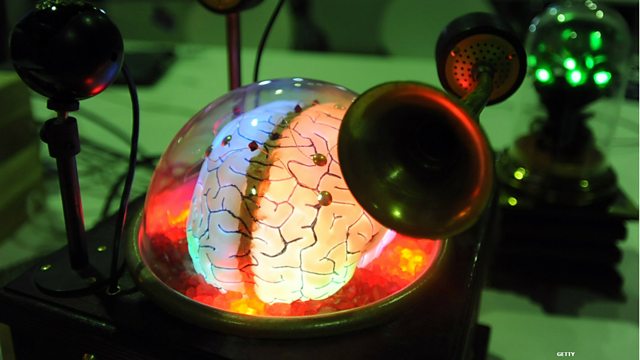Future in Review: Giving Computers 'Brains'
Can computer programmes copy the associative skills of the human brain, and will 3D-printing really bring a new industrial revolution? All that and more from Future in Review.
For years computer experts have been hailing the advance of artificial intelligence software that will in time, they say, mimic the problem-solving and decision-making skills of us humans. But how can computers, which think in straight lines, copy the lateral thinking we're capable of? Last year IBM unveiled its TrueNorth chip, hailed as the world's first pattern recognition computer processor. Larry Smarr, professor of computing at the University of California is one of the brains behind the project - he says it could lead to smartphones that can 'taste' and 'smell' wine. Ed Butler also speaks to Dharmendra Modha, chief scientist of brain-inspired computing at IBM, who developed the TrueNorth chip.
It's not just artificial intelligence in focus at the Future in Review conference - some of the world's greatest environmental and health challenges are also driving innovation. True North Theraputics aims to cure some of the world's orphan diseases - rare health complaints affecting 200,000 or fewer patients with no approved treatment. Its CEO, Nancy Stagliano, explains how her firm is stepping in to fill the gap left by the world's big pharmaceutical companies.
Plus, we've heard a lot about 3D-printing, but 4D-printing isn't far away. Shane Wall, soon-to-be Chief Technical Officer at Hewlett Packard, says within ten years we could see flat-pack tables that self-assemble with just a sprinkling of water.
(Photo: A brain-designed computer seen at the 2012 Campus Party Europe event in Berlin. Credit: Britta Pedersen, Getty Images)
Last on
More episodes
Broadcast
- Fri 9 Oct 2015 07:32GMTΒι¶ΉΤΌΕΔ World Service
Podcast
-
![]()
Business Daily
The daily drama of money and work from the Βι¶ΉΤΌΕΔ.


